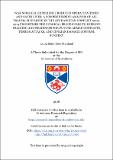War surgical experience reduces operation times and saves lives : a comprehensive analysis of all trauma sustained in the Afghanistan conflict 2009-2014 prioritises the surgical procedures to improve training and readiness for future armed conflicts, terror attacks, and civilian damage control surgery
Abstract
Background: Between 2009 and the end of UK combat operations in Helmand, Afghanistan (2014), each consecutive surgical procedure carried out by the multinational, military surgical team at the Medical Treatment Facility, Camp Bastion was collated. Through analysis I aim to develop the template for prioritising surgical procedures to improve surgical training and readiness for future armed conflicts and terror attacks.
Methods: All surgical teams operating in Camp Bastion filled out detailed, handwritten theatre logbooks for each surgical case. I transcribed all 10,891 consecutive surgical cases, and 20,266 surgical procedures, into an electronic format. I provide for the first time the distinct, original and stand-alone surgical database for this thesis: the “Maitland Module”, the largest of its kind.
Results: I present a new analysis and classification of surgery by anatomical region which accounts for the impact of the multiplicity of wounding caused by explosion on surgical workload. I present the first evidenced-based skill set requirement for war, including the most frequently performed humanitarian surgical procedures and their impact on the skill set required of a surgeon in armed conflict. I show that surgical experience predicted shorter operation times for blast trauma. I found that surgical experience of >50 blast trauma cases predicted lower fatality rates. Skill atrophy in surgical competence between conflicts exists, with an associated rise in preventable loss of life at the start of conflict.
Discussion:
I propose that the Complex Attack Surgical Team (CAST) of surgeons, with >50 blast trauma case experience, be on standby in the event of a terrorist attack in the UK to support the currently blast-naive civilian surgeons.
I hope that the template for surgical procedures may lead to standardisation and prioritisation of the skill set requirement for: trauma surgical training; NATO curriculum development; and intelligent, risk-assessed, deployment of surgeons to conflict zones.
Type
Thesis, MD Doctor of Medicine
Collections
Description of related resources
Maitland L., Lawton G., Baden J., Cubison T., Rickard R., Kay A., Hettiaratchy S. (2016) The role of military plastic surgeons in the management of modern combat trauma: an analysis of 645 cases. Plast Reconstr Surg 137, 717–724e. DOI: 10.1097/PRS.0000000000002020Related resources
https://doi.org/10.1097/PRS.0000000000002020Items in the St Andrews Research Repository are protected by copyright, with all rights reserved, unless otherwise indicated.

